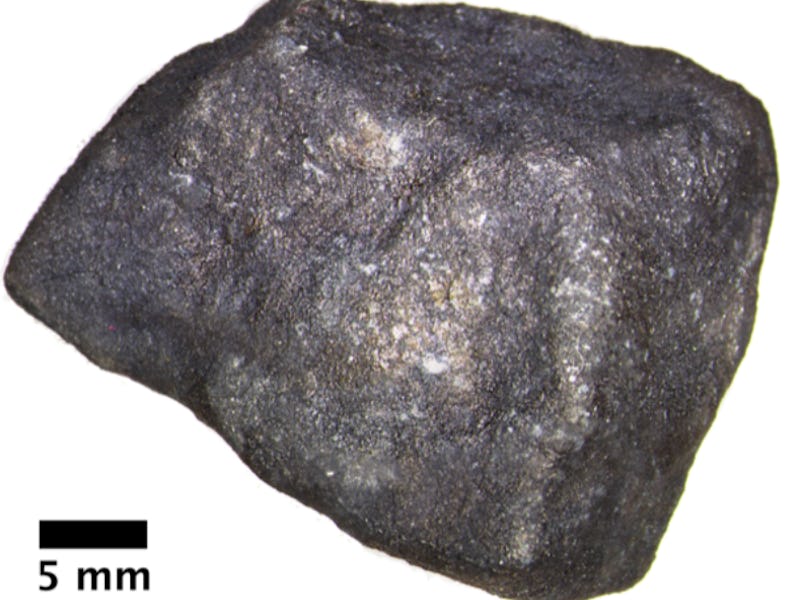Scientists uncover key ingredients for life in "pristine" fireball meteorite
"When a new meteorite falls onto a frozen lake, maybe even sometime this winter, we'll be ready."

On January 16, 2018 a fireball made its descent across the night sky above Michigan.
Incredibly, this exceptionally bright and slow-moving meteor landed on a frozen lake, and meteorite hunters immediately moved to recover whatever fragments they could.
They got more than they bargained for — rather than disparate fragments, they managed to recover a pristine chunk of the space rock. The collected meteorite offers scientists a rare glimpse of what, exactly, these rocks are made of.
What they found has serious implications for our understanding of how life began on Earth.
In a new study published Tuesday in the journal Meteoritics & Planetary Science, a team of scientists detail their analysis of the fireball meteorite — and the organic compounds found within it. These organic compounds are considered to be among the key ingredients for life.
The 'fireball,' a reference to its brightness, traveled to Earth at a lethargic 28,000 miles per hour. These key characteristics suggest the meteorite penetrated deep into Earth's atmosphere, before breaking apart. That gave scientists hope parts of it may be recovered relatively easily.
And thanks to NASA's weather radar, which is designed to detect hail and rain, a team of meteorite hunters did find six rocks on the frozen surface of Strawberry Lake, near Hamburg, Michigan — just two days after the meteorite landed on Earth.
"This meteorite is special because it fell onto a frozen lake and was recovered quickly," Philipp Heck, a curator at the Field Museum and associate professor at the University of Chicago, and lead author of the new paper, said in a statement. "It was very pristine. We could see the minerals weren't much altered and later found that it contained a rich inventory of extraterrestrial organic compounds."
When meteorites fall to Earth, they may be altered — essentially, tampered with — by the environment they fall into. But by landing on a frozen lake, the meteorite was instead as close as scientists might get to a clean sample, unaltered by Earth's own chemistry.
That means the organic compounds found in these space rocks were likely brought to Earth — critical evidence for the theory of panspermia.
Did asteroids bring life to Earth? — Meteorites are pieces of asteroids that have fallen off, and floated through space before crashing into Earth. The theory of panspermia states that billions of years ago, these meteorites were responsible for delivering organic compounds, considered to be the key ingredients of life, to Earth.
This particular meteorite was an H4 chondrite — an exceptionally rare specimen. This kind of meteorite makes up just 4 percent of all meteorites that fall onto Earth, according to the study.
The meteorite showed a high diversity of extraterrestrial organic compounds, the analysis reveals. And because it is relatively untouched by Earth's influence, it may reveal what the space rock was like while still traveling in outer space — and what its parent asteroid was like, too.
"Scientists who study meteorites and space sometimes get asked, do you ever see signs of life? And I always answer, yes, every meteorite is full of life, but terrestrial, Earth life," Heck said.
"As soon as the thing lands, it gets covered with microbes and life from Earth. We have meteorites with lichens growing on them. So the fact that this meteorite was collected so quickly after it fell, and that it landed on ice rather than in the dirt, helped keep it cleaner," he added.
Because it was so noticeable, scientists were able to compile an unusually comprehensive set of data on the fireball meteorite, building a complete-as-possible picture of the types of minerals that the meteorite contained. And already, they are excited for the next one.
"This study is a demonstration of how we can work with specialists around the world to get most out of the small piece of raw, precious piece of rock," Heck said.
"When a new meteorite falls onto a frozen lake, maybe even sometime this winter, we'll be ready. And that next fall might be something we have never seen before."
Eyes on the skies, people.